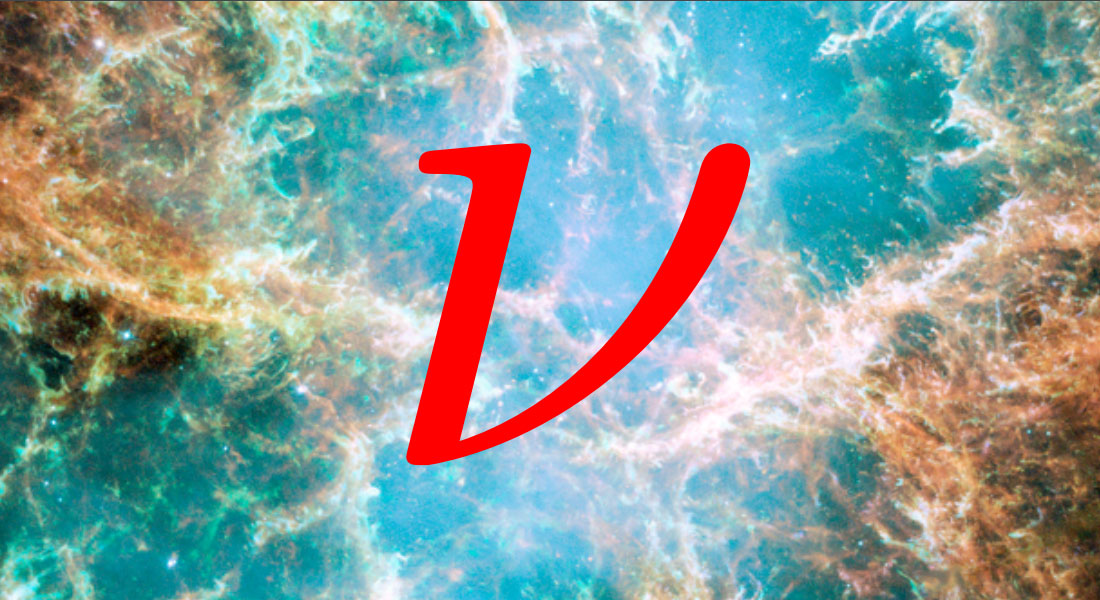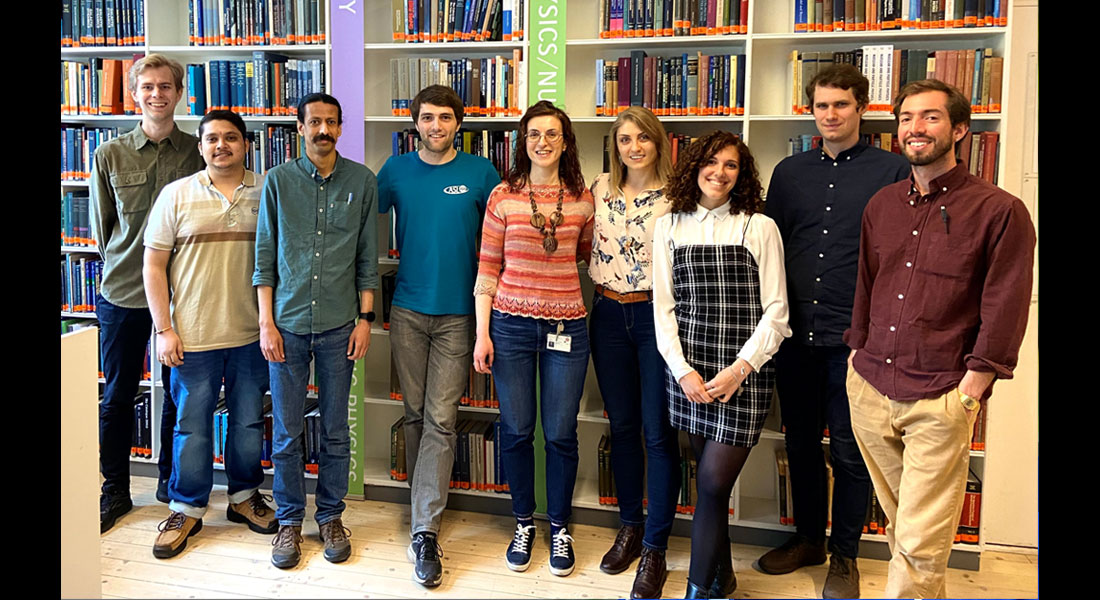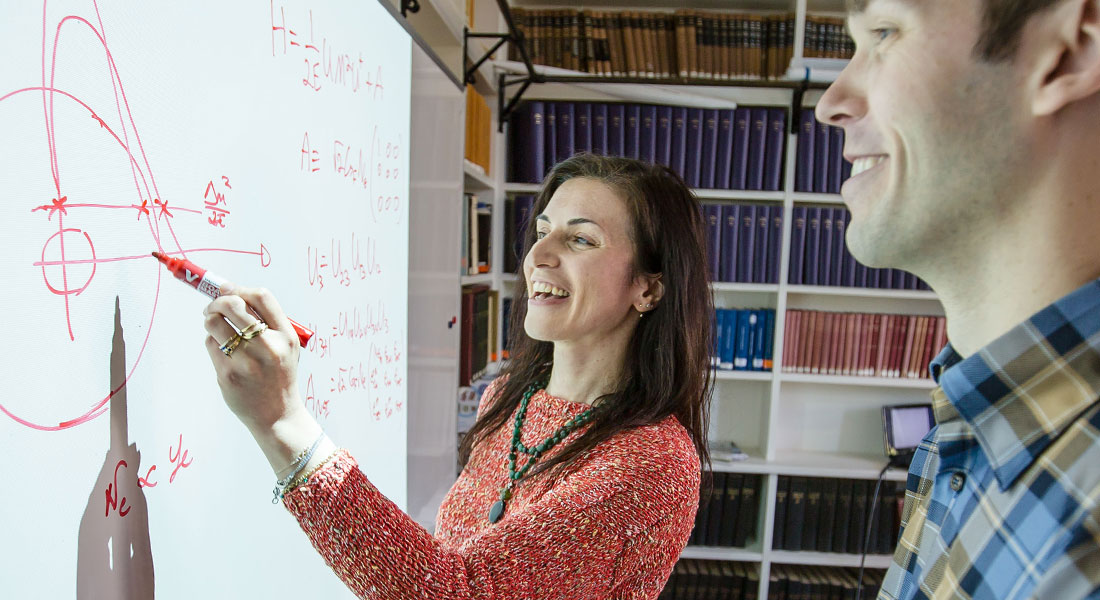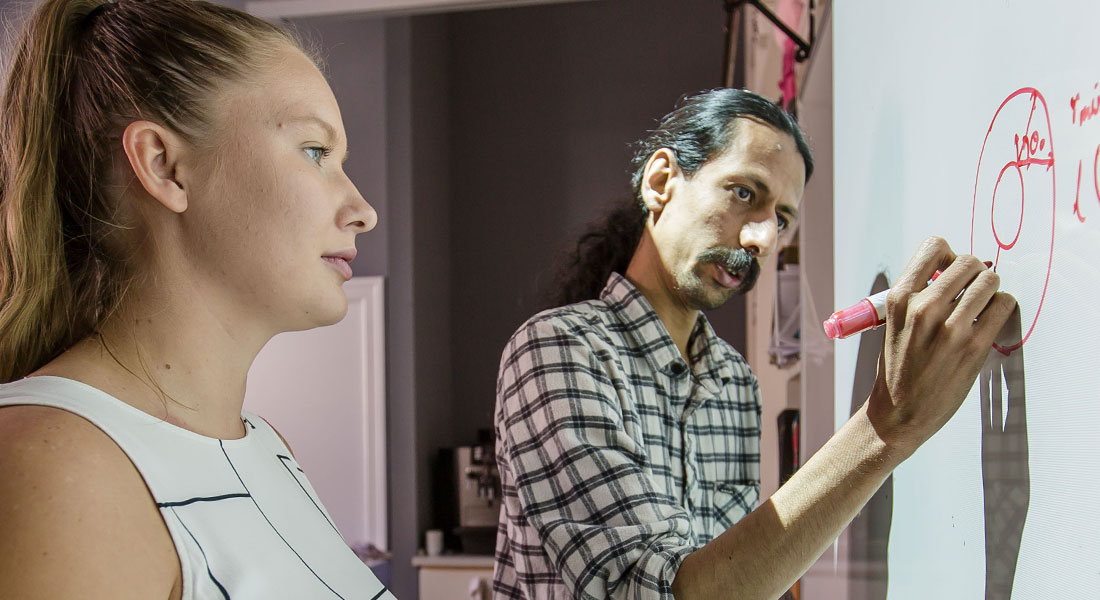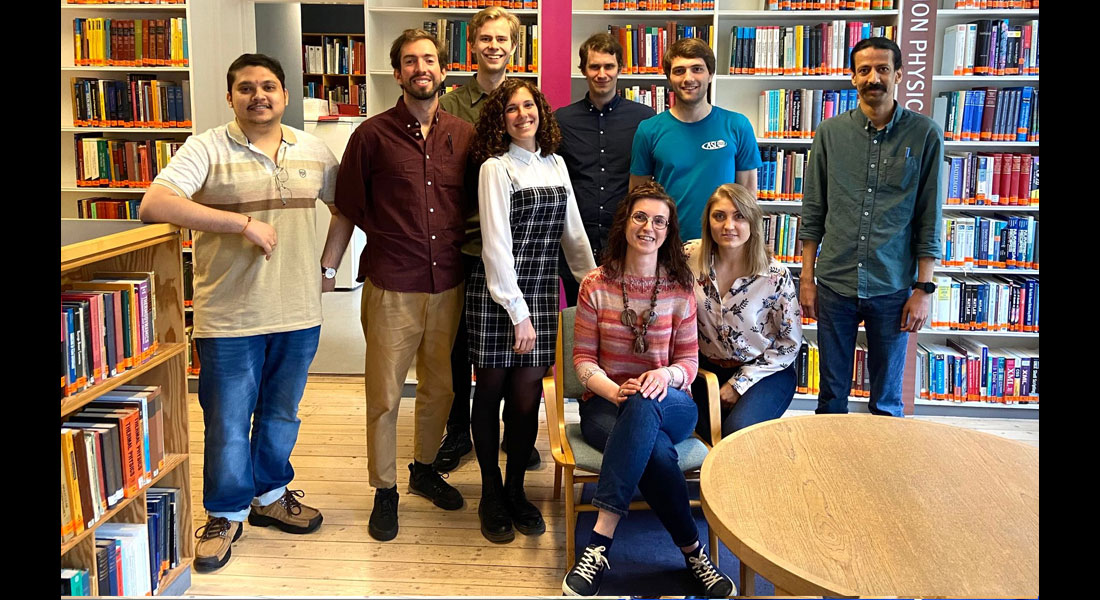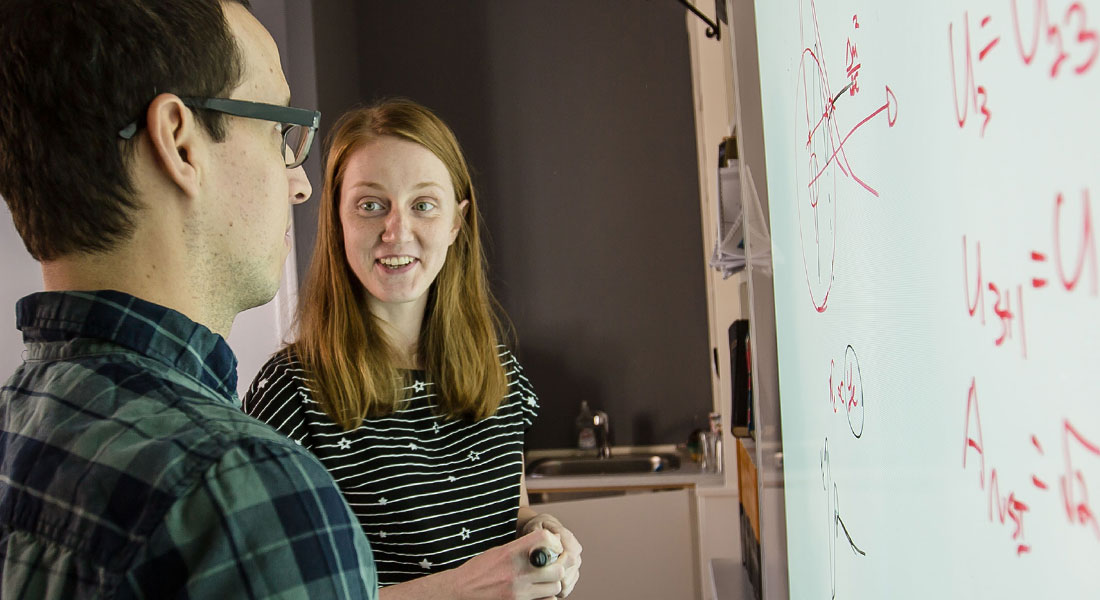The AstroNu research group
The AstroNu team aims at unveiling the physics of fascinating weakly interacting elementary particles, such as the neutrino, and explores the role of these particles and weak interactions in astrophysical sources, in the synthesis of new elements, and in the Early Universe.
The AstroNu group also adopts particles (neutrinos, photons and gravitational waves) as probes of the inner workings of astrophysical transients.
AstroNu is a research group at the Niels Bohr Institute, University of Copenhagen. We are affiliated with the Niels Bohr International Academy and DARK and work at the intersection between astrophysics and fundamental physics.
Our team aims at unveiling the physics of fascinating weakly interacting elementary particles, such as the neutrino, and explores the role of these particles and weak interactions in astrophysical sources, in the synthesis of new elements, and in the Early Universe. The AstroNu group also adopts particles (neutrinos, photons and gravitational waves) as probes of the inner workings of astrophysical transients.
Our activities are supported by the European Research Council, the University of Copenhagen, the Villum Foundation, the Carlsberg Foundation, the Danmarks Frie Forskningsfond, and the Deutsche Forschungsgemeinschaft.

The AstroNu group is actively engaged in enhancing diversity at the Niels Bohr Institute. We firmly believe that a diverse and inclusive scientific environment is beneficial to our research work.
Current Group members
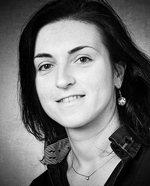 |
Irene Tamborra, Professor & Group Leader
Publications: ADS, INSPHIRE-HEP |
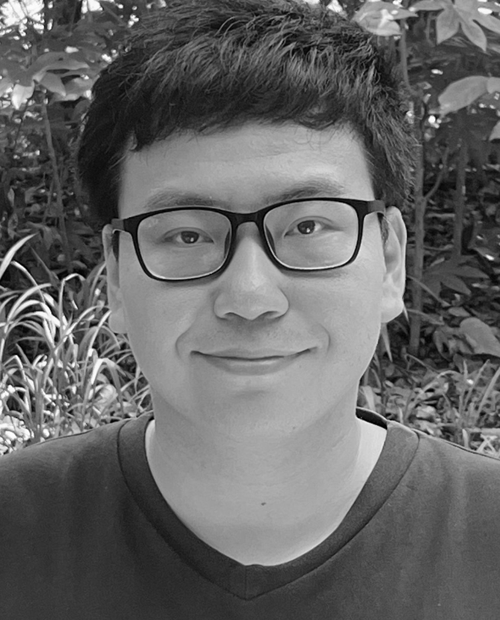 |
Shunke Ai, Postdoctoral Fellow
|
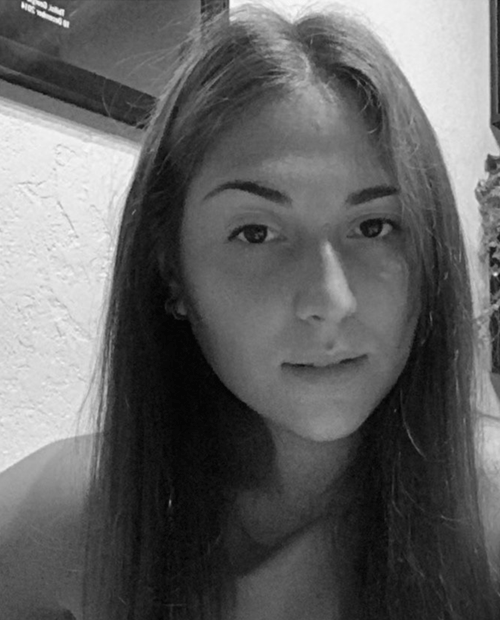 |
Mariam Gogilashvili, Postdoctoral Fellow |
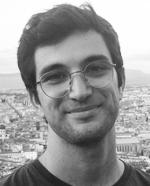 |
Pablo Martínez-Miravé, Postdoctoral Fellow Publications: ADS, INSPHIRE-HEP |
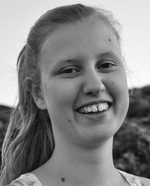 |
Marie Cornelius Hansen, PhD student |
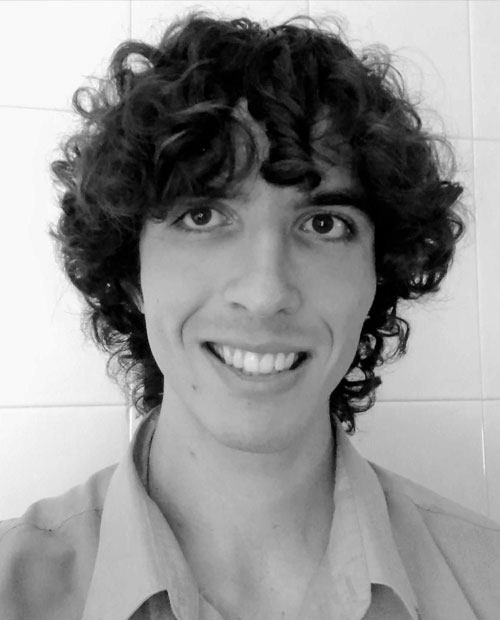 |
Manuel Goimil García, PhD student Publications: ADS, INSPHIRE-HEP |
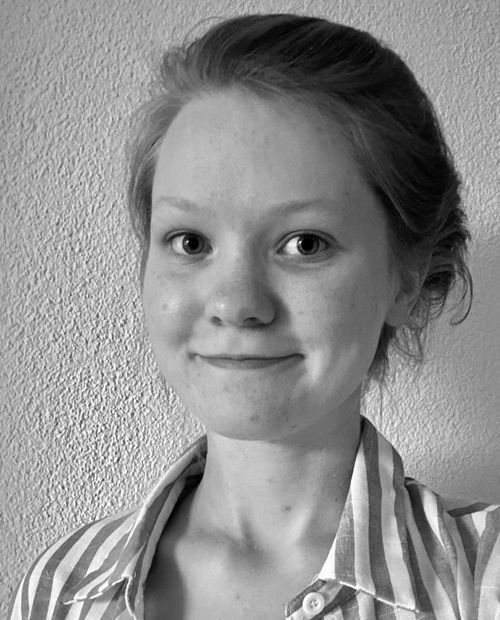 |
Maryna Mesiura, PhD student Publications: ADS, INSPHIRE-HEP |
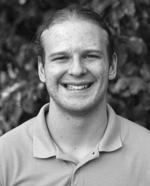 |
Noah Roux, PhD Student Publications: ADS, INSPHIRE-HEP |
Affiliated scientists
 |
Rostom Mbarek, Spitzer Fellow (Princeton U., USA) Publications: ADS, INSPHIRE-HEP |
 |
Meng-Ru Wu, Assistant Research Fellow (Academia Sinica, Taiwan)
|
Former group members
 |
Shashank Shalgar, Postdoctoral Fellow Publications: ADS, INSPHIRE-HEP
|
 |
Alessio Ludovico De Santis, Exchange PhD Student, Gran Sasso Science Institute, Italy |
 |
Leonardo Dinoi, Exchange Student, Università di Perugia, Italy (2025) |
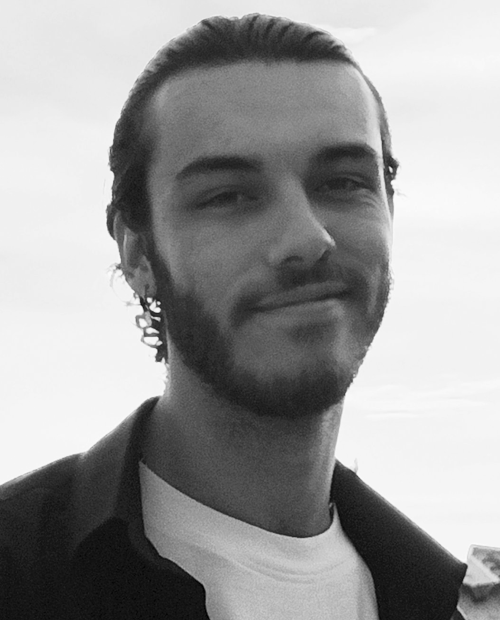 |
Julien Combel, Master Student (2024-2025) |
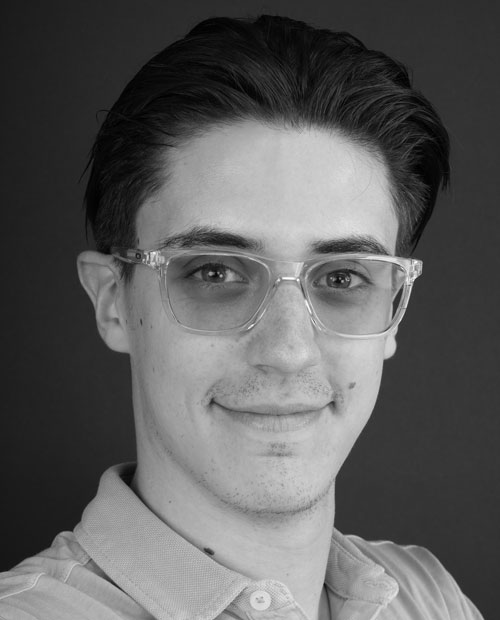 |
Marco Manno, Exchange Student, Università del Salento, Italy (2024) Publications: ADS, INSPHIRE-HEP |
 |
Miller MacDonald, Exchange Undergrad Student, Harvard University, USA (2024) Publications: ADS, INSPHIRE-HEP |
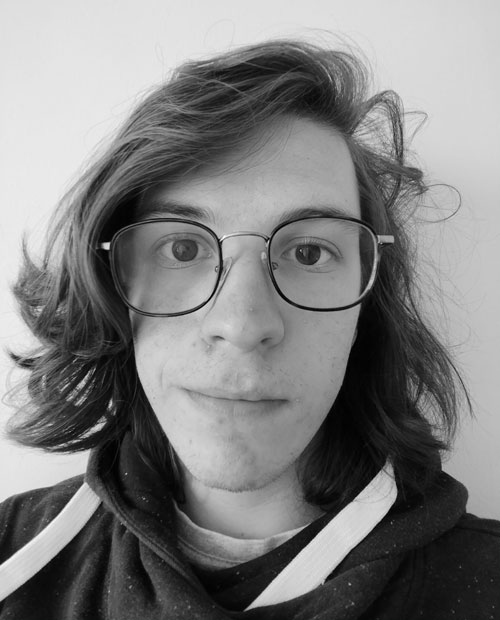 |
Valentin De Lia, Exchange Master Student, École Normale Supérieure Paris-Saclay, France (2023-2024) Publications: ADS, INSPHIRE-HEP |
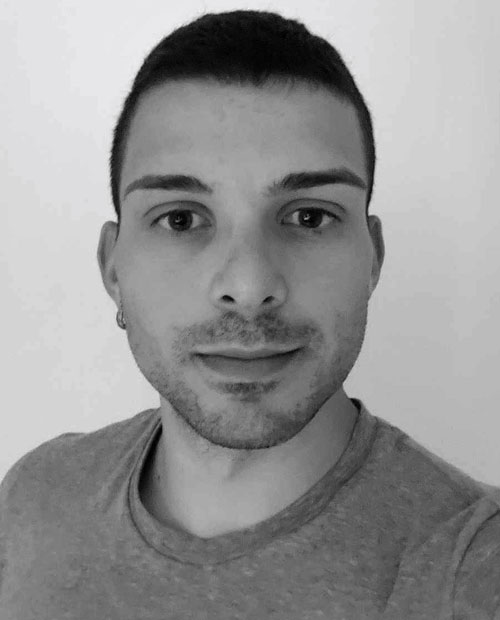 |
Stavros Bakandreas, Master Student |
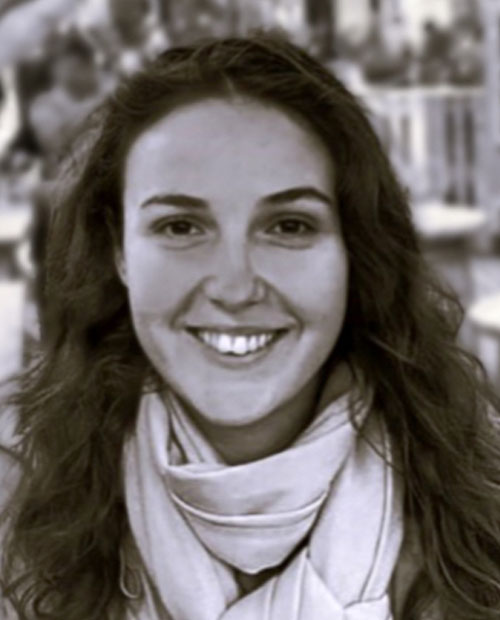 |
Julie Kiel Holm, Master Student (2023-2024 ---> PhD student, Niels Bohr Inst., DK)
|
 |
Ersilia Guarini, PhD student Publications: ADS, INSPHIRE-HEP
|
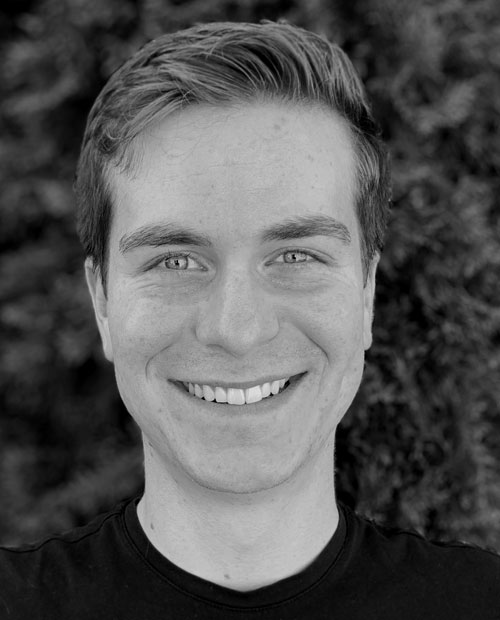 |
Adam Brček, Research Assistant |
 |
Annika Rudolph, Postdoctoral Fellow Publications: ADS, INSPHIRE-HEP
|
 |
Pedro Dedin Neto, Exchange PhD student, Campinas State U., Brasil |
 |
Tetyana Pitik, PhD student |
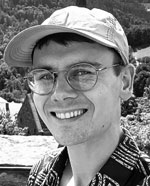 |
Samuel John Pádraig Bensted, Master Student |
 |
Amit Singh, Master Student |
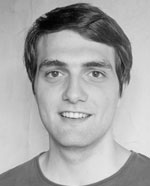 |
Jonathan Bödewadt, Exchange Master Student, University of Hamburg, Germany
|
 |
Pablo Martínez-Miravé, EuCAPT Exchange PhD student, IFIC, U. Valencia, Spain |
 |
Ian Padilla-Gay, PhD student Publications: ADS, INSPHIRE-HEP |
 |
Rasmus S. L.Hansen, INTERACTIONS Postdoctoral Fellow Publications: ADS, INSPHIRE-HEP |
 |
Arun Krishna Ganesan, Master Student |
 |
Garðar Sigurðarson, Master Student Publications: ADS, INSPHIRE-HEP |
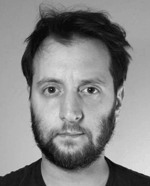 |
Edoardo Vitagliano, Rosenfeld Visiting Fellow, University of California, Los Angeles Publications: ADS, INSPHIRE-HEP |
 |
Anna Suliga, PhD Student Publications: ADS, INSPHIRE-HEP |
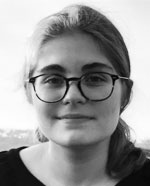 |
Lila Sarfati, Exchange Student, Ecole Normale Supérieure, Paris, France Publications: ADS, INSPHIRE-HEP |
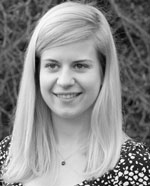 |
Laurie Walk, PhD Student |
 |
Rohan Kumar,MSc Student |
 |
Daniel Abdulla Bobruk, MSc Student (2020 --> CERN Internship)
|
 |
Mauricio Bustamante, Postdoctoral Fellow Publications: ADS, INSPHIRE-HEP |
 |
Marie-Louise Riis, MSc Student |
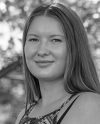 |
Charlotte A. Rosenstrøm, MSc Student Publications: ADS, INSPHIRE-HEP |
 |
Karen Macías Cárdenas, Exchange Student, Autonomous University of Baja California, Mexico (2019-2020 --> Graduate student, Queen's University, Canada) |
 |
Kilian Hersent, Exchange Student, Ecole Nationale Supérieure de Techniques Avancées, Paris, France (2019) |
 |
Peter Denton,Postdoctoral Fellow
(2016-2018. ---> Assistant Physicist, Brookhaven National Laboratory, US) Publications: ADS, INSPHIRE-HEP |
 |
Klaes Møller, MSc Student
(2017-2018) Publications: ADS, INSPHIRE-HEP |
 |
Anna Suliga, MSc Student
(2017-2018 ---> PhD Student at Niels Bohr Institute, Denmark) Publications: ADS, INSPHIRE-HEP |
 |
Veronica Sølund Kirsebom, MSc Student
(2016-2018. ---> PhD Student at École Polytechnique Fédérale de Lausanne, Switzerland) |
 |
Meng-Ru Wu, Postdoctoral Fellow
(2016-2017. ---> Assistant Research Fellow at Academia Sinica, Taiwan) Publications: ADS, INSPHIRE-HEP |
 |
Mia-Louise Nielsen, BSc Student
(2017) |
 |
Bo Schmidt, Research Assistant
(2017) |
The AstroNu group aims at addressing the following questions:
- Which is the role of weakly interacting particles and weak interactions in dense environments, such as core-collapse supernovae, neutron-star mergers, and the early universe?
- What is the impact of neutrino flavor conversion on the stellar dynamics and formation of elements in the Universe?
- How are particles produced in cosmic accelerators? Under which conditions could efficient particle acceleration occur in astrophysical sources?
- What are the detectable imprints of the source physics carried by cosmic messengers (neutrinos, photons and gravitational waves)?
- How can we learn about non-standard physics through astrophysical sources?
- What are the chances of detecting cosmic messengers with existing and upcoming facilities?

2026
- P. Martínez-Miravé, I. Tamborra, G. Raffelt, Detection horizon for the neutrino burst from the stellar helium flash, arXiv: 2602.15119.
- W. Lian et al., Multimessenger prospects for low-luminosity gamma-ray bursts: joint neutrino and X-ray observations, arXiv: 2601.10317.
2025
- S. Ai, I. Tamborra, Magnetized shocks mediated by radiation from leptonic and hadronic processes, arXiv: 2512.00155.
- L. Lan et al., Constraining the properties of GRB accreting magnetar with R/I evolutionary effects using Swift/XRT data, arXiv: 2511.22149.
- P. Martínez-Miravé, I. Tamborra, Neutrinos from stars in the Milky Way, Phys. Rev. D 113 (2026) 023014 [arXiv: 2510.07399].
- M. Goimil-García, I. Tamborra, Steady state of fast-oscillating neutrinos in an inhomogeneous medium, Phys. Rev. D 112 (2025) 103011 [arXiv: 2509.22805].
- R. Fernández, S. Janke, C. Dean, I. Tamborra, Collapsar Disk Outflows: Detectable Neutrino and Gravitational Wave Signatures, Phys. Rev. D 112 (2025) 123047 [arXiv: 2507.17836].
- M. Cornelius, I. Tamborra, M. Heinlein, S. Shalgar, H.-T. Janka, Electron-neutrino lepton number crossings: variations with the supernova core physics, Phys. Rev. D 112 (2025) 063006 [arXiv: 2507.13429].
- W. Yuan et al., Science objectives of the Einstein Probe mission, Science China Physics, Mech. & Astron. 68 (2025) 3, 239501.
- L. Lan, H. Gao, S. Ai, et al., Constrain magnetar parameters by taking into account the evolutionary effects of radius and moment of inertia with Swift/XRT data, Astrophys. J. Supp. 280 (2025) 1, 45 [arXiv: 2507.11110].
- M. Cornelius, I. Tamborra, M. Heinlein, H.-T. Janka, Diagnosing electron-neutrino lepton number crossings in core-collapse supernovae: a comparison of methods, Phys. Rev. D 112 (2025) 063004 [arXiv: 2506.20723].
- T. Bertólez-Martínez, G. Herrera, P. Martínez-Miravé, J. Terol Calvo, The Highest-Energy Neutrino Event Constrains Dark Matter-Neutrino Interactions, arXiv: 2506.08993.
- S. Shalgar, I. Tamborra, Neutrino quantum kinetics in three flavors, JCAP 12 (2025) 026 [arXiv: 2503.03835].
- P. Martínez-Miravé, I. Tamborra, A. Vigna-Gomez, Identifying Thorne-Zytkow Objects through Neutrinos, Astrophys. J. Lett. 984 (2025) L2 [arXiv: 2501.03330].
2024
- W. Lian, S. Ai, H. Gao, Prospects of GRB-Neutrino Detection with Enhanced Neutrino Detectors, Astrophys. J. 987 (2025) 1,79 [arXiv: 2412.16868].
- J.-D. Li, H. Gao, S. Ai, W.-H. Lei, Multiple Rebrightenings in the Optical Afterglow of GRB 210731A: Evidence for an Asymmetric Jet, Astrophys. J. 978 (2025) 1, 116 [arXiv: 2412.01229].
- J.-D. Li, H. Gao, S. Ai, W.-H. Lei, Polarization of Gamma-Ray Burst Afterglows in the Context of Non-axisymmetric Structured Jets, Astrophys. J. 978 (2025) 2, 124 [arXiv: 2412.01228].
- M. Goimil-García, S. Shalgar, I. Tamborra, Pauli blocking: probing beyond-mean-field effects in neutrino flavor evolution, Phys. Rev. D 111 (2025) 083054 [arXiv: 2412.12268].
- I. Tamborra, Neutrinos from explosive transients at the dawn of multi-messenger astronomy, Nat. Rev. Phys. 7 (2025) 285-298 [arXiv: 2412.09699].
- D.F.G. Fiorillo, M. Goimil-García, G.G. Raffelt, Fast Flavor Pendulum: Instability Condition, Phys. Rev. D 111 (2025) 8, 8 [arXiv: 2412.09027].
- M. Cerruti et al., A Comprehensive Hadronic Code Comparison for Active Galactic Nuclei, Astrophys. J. Supp. 282 (2026) 1, 22 [arXiv: 2411.14218].
- A. Rudolph, I. Tamborra, O. Gottlieb, Subphotospheric Emission from Short Gamma-Ray Bursts. II. Signatures of Non-Thermal Dissipation in the Multi-Messenger Signals, Astrophys. J. 983 (2025) 1, 34 [arXiv: 2410.23258].
- L. Boccioli, M. Gogilashvili, J. Murphy, E. P. O'Connor, Quantifying the Impact of the Si/O Interface in CCSN Explosions Using the Force Explosion Condition, MNRAS 537 (2025) 1182-1196 [arXiv: 2410.17232].
- B. Barker et al., Phoebus: Performance Portable GRRMHD for Relativistic Astrophysics, arXiv: 2410.09146.
- H. Sun et al., Extragalactic fast X-ray transient from a weak relativistic jet associated with a Type Ic-BL supernova, Nature Astron. 9 (2025) 7, 1073 [arXiv: 2410.02315].
- A.M. Suliga et al., Non-conservation of Lepton Numbers in the Neutrino Sector Could Change the Prospects for Core Collapse Supernova Explosions, Phys. Rev. Lett. 134 (2025) 24, 24 [arXiv: 2410.01080].
- M. MacDonald, P. Martínez-Miravé, I. Tamborra, The Unknowns of the Diffuse Supernova Neutrino Background Hinder New Physics Searches, JCAP 01 (2025) 062 [arXiv: 2409.16367].
- P. Martínez-Miravé, I. Tamborra, M. A. Aloy, M. Obergaulinger, Diffuse Neutrino Background from Magnetorotational Stellar Core Collapses, Phys. Rev. D 110 (2024) 103029 [arXiv: 2409.09126].
- M. Cornelius, S. Shalgar, I. Tamborra, Neutrino quantum kinetics in two spatial dimensions, JCAP 11 (2024) 060 [arXiv: 2407.04769].
- B. Telanovic, D. F.G. Fiorillo, P. Martínez-Miravé, E. Vitagliano, M. Bustamante, The next galactic supernova can uncover mass and couplings of particles decaying to neutrinos, JCAP 11 (2024) 011 [arXiv: 2406.15506].
- V. De Lia, I. Tamborra, High energy neutrino production in gamma-ray bursts: dependence of the neutrino signal on the jet composition, JCAP 10 (2024) 054 [arXiv: 2406.14975].
- S. Shalgar, I. Tamborra, Neutrino quantum kinetics in a core-collapse supernova, JCAP 09 (2024) 021 [arXiv: 2406.09504].
- P. Martínez-Miravé, Y. F. Perez-Gonzalez, M. Sen, Effects of Neutrino-Ultralight Dark Matter Interaction on the Cosmic Neutrino Background, Phys. Rev. D 110 (2024) 5, 055005 [arXiv: 2406.01682].
- I. Padilla-Gay, S. Shalgar, I. Tamborra, Symmetry breaking due to multi-angle matter-neutrino resonance in neutron star merger remnants, JCAP 05 (2024) 037 [arXiv: 2403.15532].
- P. Martínez-Miravé, I. Tamborra, M. Tórtola, The Sun and core-collapse supernovae are leading probes of the neutrino lifetime, JCAP 05 (2024) 002 [arXiv: 2402.00116].
2023
- M. Klinger et al., AM3: An Open-Source Tool for Time-Dependent Lepto-Hadronic Modeling of Astrophysical Source, Astrophys. J. Suppl. 275 (2024) 1, 4 [arXiv: 2312.13371].
- P. Dedin Neto, I. Tamborra, S. Shalgar, Fast Conversion of Neutrinos: Energy Dependence of Flavor Instabilities, arXiv: 2312.06556.
- M. Cornelius, S. Shalgar, I. Tamborra, Perturbing Fast Neutrino Flavor Conversion, JCAP 02 (2024) 038 [arXiv: 2312.03839].
- A. Vigna-Gomez, R. Willcox, I. Tamborra, I. Mandel, M. Renzo, T. Wagg, H.-T. Janka, D. Kresse, J. Bodensteiner, T. Shenar, Observational evidence for neutrino natal kicks from black-hole binary VFTS 243, Phys. Rev. Lett. 132 (2024) 191403 [arXiv: 2310.01509].
- A. Rudolph, I. Tamborra, O. Gottlieb, Subphotospheric emission from short gamma-ray bursts: Protons mold the multi-messenger signals, Astrophys. J. Lett. 961 (2024) 1 [arXiv: 2309.08667].
- E. Guarini, I. Tamborra, R. Margutti, E. Ramirez-Ruiz, Transients stemming from collapsing massive stars: The missing pieces to advance joint observations of photons and high-energy neutrinos, Phys. Rev. D 108 (2023) 083035 [arXiv: 2308.03840].
- S. Shalgar, I. Tamborra, Do Neutrinos Become Flavor Unstable Due to Collisions with Matter in the Supernova Decoupling Region?, Phys. Rev. D 109 (2024) 103011 [arXiv: 2307.10366].
- T. Pitik, I. Tamborra, M. Lincetto, A. Franckowiak, Optically Informed Searches of High-Energy Neutrinos from Interaction-Powered Supernovae, MNRAS 524 (2023) 3, 3366-3384 [arXiv: 2306.01833].
- J. Ehring, S. Abbar, H.-T. Janka, G. Raffelt, I. Tamborra, Fast Neutrino Flavor Conversions can Help and Hinder Neutrino-Driven Explosions, Phys. Rev. Lett. 131 (2023) 061401 [arXiv: 2305.11207].
- M. Diamond, D. F. G. Fiorillo, G. Marques-Tavares, I. Tamborra, E. Vitagliano, Multimessenger Constraints on Radiatively Decaying Axions from GW170817, Phys. Rev. Lett. 132 (2024) 101004 [arXiv: 2305.10327].
- M. Drago, H. Andresen, I. Di Palma, I. Tamborra, A. Torres-Forné, Multi-messenger observations of core-collapse supernovae: Exploiting the standing accretion shock instability, Phys. Rev. D 108 (2023) 103036 [arXiv: 2305.07688].
- S. Shalgar, I. Tamborra, Do we have enough evidence to invalidate the mean-field approximation adopted to model collective neutrino oscillations?, Phys. Rev. D 107 (2023) 123004 [arXiv: 2304.13050].
- P. Sarmah, S. Chakraborty, I. Tamborra, K. Auchettl, Gamma-rays and neutrinos from supernovae of Type Ib/c with late time emission, Phys. Rev. D 108 (2023) 103033 [arXiv: 2303.13576].
- J. Ehring, S. Abbar, H.-T. Janka, G. Raffelt, I. Tamborra, Fast Neutrino Flavor Conversion in Core-Collapse Supernovae: A Parametric Study in 1D Models, Phys. Rev. D 107 (2023) 103034 [arXiv: 2301.11938].
- E. Guarini, I. Tamborra, D.Bégué, A. Rudolph, Probing gamma-ray bursts observed at very high energies through their afterglow, MNRAS 523 (2023) 1, 149-162 [arXiv: 2301.10256].
2022
- L. Walk, T. Foglizzo, I. Tamborra, Stalled Accretion Shock Instability in the Collapse of a Rotating Stellar Core, Phys. Rev. D 107 (2023) 06, 063014 [arXiv: 2212.07467].
- A. Rudolph, M. Petropoulou, W. Winter, Z. Bosnjak, Multi-messenger model for the prompt emission from GRB 221009A, Astrophys. J. Lett. 944 (2023) 2, L34 [arXiv: 2212.00766].
- A. Rudolph, M. Petropoulou, Z. Bosnjak, W. Winter, Multi-collision internal shock lepton-hadronic models for energetic GRBs, Astrophys.J. 950 (2023) 1, 28 [arXiv: 2212.00765].
- E. Guarini, I. Tamborra, O. Gottlieb, State-of-the-Art Collapsar Jet Simulations Imply Undetectable Subphotospheric Neutrinos, Phys. Rev. D 107 (2023) 023001 [arXiv: 2210.03757].
- D.F.G. Fiorillo, G.G. Raffelt, E. Vitagliano, Strong Supernova 1987A Constraints on Bosons Decaying to Neutrinos, Phys.Rev.Lett. 131 (2023) 2, 021001 [arXiv: 2209.11773].
- I. Padilla-Gay, I. Tamborra, G.G. Raffelt, Neutrino Fast Flavor Pendulum. Part 2: Collisional Damping, Phys. Rev. D 106 (2022) 103031 [arXiv: 2209.11235].
- G. Sigurðarson, I. Tamborra, M.-R. Wu, Resonant Production of Light Sterile Neutrinos in Compact Binary Merger Remnants, Phys. Rev. D 106 (2022) 123030 [arXiv: 2209.07544].
- T. Pitik, D. Heimsoth, A. M. Suliga, A. B. Balantekin, Exploiting stellar explosion induced by the QCD phase transition in large-scale neutrino detectors, Phys. Rev. D 106 (2022) 10, 103007 [arXiv: 2208.14469].
- S. Shalgar, I. Tamborra, Neutrino Flavor Conversion, Advection, and Collisions: Towards the Full Solution, Phys. Rev. D 107 (2023) 063025 [arXiv: 2207.04058].
- S. Shalgar, I. Tamborra, Neutrino Decoupling Is Altered by Flavor Conversion, Phys. Rev. D 108 (2023) 4, 043006 [arXiv: 2206.00676].
- E. Guarini, I. Tamborra, R. Margutti, Neutrino Emission from Luminous Fast Blue Optical Transients, Astrophys. J. 935 (2022) no. 2, 157 [arXiv: 2205.12282].
- J. J. Ziegler, T. D. P. Edwards, A. M. Suliga, I. Tamborra, S. Horiuchi, S. Ando, K. Freese, Non-Universal Stellar Initial Mass Functions: Large Uncertainties in Star Formation Rates at z=2-4 and Other Astrophysical Probes, MNRAS 517 (2022) 2471 [arXiv: 2205.07845].
- R.S.L. Hansen, S. Shalgar, I. Tamborra, Collisional dilemma: Enhancement or damping of fast flavor conversion of neutrinos, Phys. Rev. D 105 (2022) 12, 123003 [arXiv: 2204.11873].
- A. Caputo, G. Raffelt, E. Vitagliano, Radiative transfer in stars by feebly interacting bosons, JCAP 08 (2022) 08, 045 [arXiv: 2204.11862].
- P. Sarmah, S. Chakraborty, I. Tamborra, K. Auchettl, High energy particles from young supernovae: gamma-ray and neutrino connections, JCAP 08 (2022) 08, 011 [arXiv: 2204.03663].
- O. Just, S. Abbar, M.-R. Wu, I. Tamborra, H.-T. Janka, F. Capozzi, Fast Neutrino Conversion in Hydrodynamic Simulations of Neutrino-Cooled Accretion Disks, Phys. Rev. D 105 (2022) 8, 083024 [arXiv: 2203.16559].
2021
- A.M. Suliga, J.F. Beacom, I. Tamborra, Towards Probing the Diffuse Supernova Neutrino Background in All Flavors, Phys. Rev. D 105 (2022) 043008 [arXiv: 2112.09168].
- E. Guarini, I. Tamborra, D. Bégué, T. Pitik, J. Greiner, Multi-messenger detection prospects of gamma-ray burst afterglows with optical jumps, JCAP 06 (2022) 034 [arXiv: 2112.07690].
- R. Alves Batista et al., EuCAPT White Paper: Opportunities and Challenges for Theoretical Astroparticle Physics in the Next Decade, arXiv: 2110.10074.
- T. Pitik, I. Tamborra, C. R. Angus, K. Auchettl, Is the high-energy neutrino event IceCube-200530A associated with a hydrogen rich superluminous supernova?, Astrophys. J. 929 (2022) no.2, 163 [arXiv: 2110.06944].
- L. Sarfati, R. S. L. Hansen, I. Tamborra, Triangulating Black Hole Forming Collapses through Neutrinos, Phys. Rev. D 105 (2022) 02 [arXiv: 2110.02347].
- I. Padilla-Gay, I. Tamborra, G. Raffelt, Neutrino flavor pendulum reloaded: The case of fast pairwise conversion, Phys. Rev. Lett. 128 (2022) 121102 [arXiv: 2109.14627].
- I. Padilla-Gay, S. Shalgar, Fast flavor conversion of neutrinos in presence of matter bulk velocity, arXiv: 2108.00012.
- S. Shalgar, I. Tamborra, Symmetry breaking induced by pairwise conversion of neutrinos in compact sources, Phys. Rev. D 105 (2022) 043018 [arXiv: 2106.15622].
- D. Das et al., A three Higgs doublet model with symmetry-suppressed flavour changing neutral currents, JHEP 11 (2021) 079 [arXiv: 2106.06425].
- S. Shalgar, I. Tamborra, The three flavor revolution in fast pairwise neutrino conversion, Phys. Rev. D 104 (2021) 023011 [arXiv: 2103.12743].
- T. Pitik, I. Tamborra, M. Petropoulou, Neutrino signal dependence on gamma-ray burst emission mechanism, JCAP 05 (2021) 034 [arXiv: 2102.02223].
2020
- N. Song et al., The Future of High-Energy Astrophysical Neutrino Flavor Measurements, JCAP 04 (2021) 054 [arXiv: 2012.12893].
- A. M. Suliga, S. Shalgar, G. M. Fuller, A closer look at the pp-chain reaction in the Sun: Constraining the coupling of light mediators to protons, JCAP 07 (2021) 042 [arXiv: 2012.11620].
- S. Abbar, F. Capozzi, R. Glas, H.-T. Janka, I. Tamborra, On the characteristics of fast neutrino flavor instabilities in three-dimensional core-collapse supernova models, Phys. Rev. D 103 (2021) no. 6, 063033 [arXiv: 2012.06594].
- R. S. L. Hansen, S. Shalgar, I. Tamborra, Neutrino flavor mixing breaks isotropy in the early universe, JCAP 07 (2021) 017 [arXiv: 2012.03948].
- I. Tamborra, S. Shalgar, New Developments in Flavor Evolution of a Dense Neutrino Gas, Ann. Rev. Nucl. Part. Sci. 71 (2021) 165-188 [arXiv: 2011.01948].
- S. Shalgar, I. Tamborra, A change of direction in pairwise neutrino conversion physics: The effect of collisions, Phys. Rev. D 103 (2021) 063002 [arXiv: 2011.00004].
- S. Al Kharusi et al., SNEWS 2.0: A Next-Generation SuperNova Early Warning System for Multi-Messenger Astronomy, New J. Phys. 23 (2021) 031201 [arXiv: 2011.00035].
- A. M. Suliga, I. Tamborra, Astrophysical constraints on non-standard coherent neutrino-nucleus scattering, Phys. Rev. D 103 (2021) 083002 [arXiv: 2010.14545].
- M. George, M.-R. Wu, I. Tamborra, R. Ardevol-Pulpillo, H.-T. Janka, Fast neutrino flavor conversion, ejecta properties, and nucleosynthesis in newly-formed hypermassive remnants of neutron-star mergers, Phys. Rev. D 102 (2020) no. 10 [arXiv: 2009.04046].
- I. Padilla-Gay, S. Shalgar, I. Tamborra, Multi-Dimensional Solution of Fast Neutrino Conversions in Binary Neutron Star Merger Remnants, JCAP 01 (2021) 017 [arXiv: 2009.01843].
- M. Ahlers, M. Bustamante, N. G. Nortvig Willesen, Flavors of Astrophysical Neutrinos with Active-Sterile Mixing, JCAP 07 (2021) 029 [arXiv: 2009.01253].
- M. Bustamante, I. Tamborra, Using High-Energy Neutrinos as Cosmic Magnetometers, Phys. Rev. D 102 (2020) 12, 123008 [arXiv: 2009.01306].
- S. Shalgar, I. Tamborra, Dispelling a myth on dense neutrino media: fast pairwise conversions depend on energy, JCAP 01 (2021) 014 [arXiv: 2007.07926].
- A.M. Suliga, I. Tamborra, M.-R. Wu, Lifting the core-collapse supernova bounds on keV-mass sterile neutrinos, JCAP 08 (2020) 018 [arXiv: 2004.11389].
- L. Pattavina, N. Ferreiro Iachellini, I. Tamborra, Neutrino observatory based on archeological lead, Phys. Rev. D 102 (2020) no. 6, 063001 [arXiv: 2004.06936].
- M. Bustamante, New limits on neutrino decay from the Glashow resonance of high-energy cosmic neutrinos, arXiv: 2004.06844.
- T. Hasegawa et al., MeV-scale reheating temperature and cosmological production of light sterile neutrinos, JCAP 08 (2020) 015 [arXiv: 2003.13302].
- M. Bustamante, C. Rosenstroem, S. Shalgar, I. Tamborra, Bounds on secret neutrino interactions from high-energy astrophysical neutrinos, Phys. Rev. D 101 (2020) no.12, 123024 [arXiv: 2001.04994].
2019
- S. Shalgar, I. Tamborra, M. Bustamante, Core-collapse supernovae stymie secret neutrino interactions, Phys. Rev. D 103 (2021) 123008 [arXiv: 1912.09115].
- S. Shalgar, I. Padilla-Gay, I. Tamborra, Neutrino propagation hinders fast pairwise flavor conversions, JCAP 06 (2020) 048 [arXiv: 1911.09110].
- L. Walk, I. Tamborra, H.-T. Janka, A. Summa, D. Kresse, Neutrino emission characteristics of black hole formation in three-dimensional simulations of stellar collapse, Phys. Rev. D 101 (2020) no.12, 123013 [arXiv: 1910.12971].
- E. Vitagliano, I. Tamborra, G. Raffelt, Grand Unified Neutrino Spectrum at Earth, Rev. Mod. Phys. 92 (2020) 045006 [arXiv: 1910.11878].
- A. M. Suliga, I. Tamborra, M.-R. Wu, Tau lepton asymmetry by sterile neutrino emission -- Moving beyond one-zone models, JCAP 12 (2019) 019 [arXiv: 1908.11382].
- J. R. Westernacher-Schneider, E. O'Connor, E. O'Sullivan, I. Tamborra, M.-R. Wu, S. M. Couch, F. Malmenbeck, Multimessenger Asteroseismology of Core-Collapse Supernovae, Phys. Rev. D 100 (2019) 12 [arXiv: 1907.01138].
- M. Bustamante, Exact neutrino oscillation probabilities: a fast general-purpose computation method for two and three neutrino flavors, arXiv: 1904.12391.
- S. Shalgar and I. Tamborra, On the Occurrence of Crossings Between the Angular Distributions of Electron Neutrinos and Antineutrinos in the Supernova Core, Astrophys. J. 883 (2019) 80 [arXiv: 1904.07236].
- C. Fryer et al., Core-Collapse Supernovae and Multi-Messenger Astronomy, Bull. Am. Astron. Soc. 51 (2019) 122.
- R. Alves Batista et al., Open Questions in Cosmic-Ray Research at Ultrahigh Energies, Front. Astron. Space Sci. 6 (2019) 23 [arXiv: 1903.06714].
- M. Ackermann et al., Astrophysics Uniquely Enabled by Observations of High-Energy Cosmic Neutrinos, Bull. Am. Astron. Soc. 51 (2019) 185 [arXiv: 1903.04334].
- M. Ackermann et al., Fundamental Physics with High-Energy Cosmic Neutrinos, Bull. Am. Astron. Soc. 51 (2019) 215 [arXiv: 1903.04333].
- M. Bustamante and M. Ahlers, Inferring the flavor of high-energy astrophysical neutrinos at their sources, Phys. Rev. Lett. 122 (2019) no. 24, 241101 [arXiv: 1901.10087].
-
L. Walk, I. Tamborra, H.-T. Janka, A. Summa, Effects of SASI and LESA in the neutrino emission of rotating supernovae, Phys. Rev. D 100 (2019) no.6, 063018 [arXiv: 1901.06235].
2025
- Guenther Sigl (Hamburg U.)
- Maria Cristina Volpe (CNRS, Paris)
- Philipp Moesta (U. of Amsterdam)
- Frank Jia Qu (Stanford U.)
- Thierry Foglizzo (Université Paris-Saclay)
- Yongzhong Qian (U. of Minnesota)
- Marcus DuPont (Princeton U.)
- Daniel Siegel (U. of Greifswald)
- Suvi Gezari (Space Telescope Science Institute & Johns Hopkins U.)
- Stuart Simm (Belfast U.)
- Anna Watts (University of Amsterdam)
2024
- Daniel Kresse (Max Planck Institute for Astrophysics)
- Kenta Kiuchi (Albert Einstein Institute)
- Ore Gottlieb (Flatiron Inst. & Columbia U.)
- Edo Berger (Harvard U.)
- Tamara Davis (U. of Queensland)
- Rob Fender (Oxford U.)
- Anna Franckowiak (Ruhr University, Bochum)
- Steen Hannestad (Aarhus U.)
- Anna Ho (Cornell U.)
- Daniel Holz (U. of Chicago)
- Dong Lai (Cornell U.)
- Antony Mezzacappa (U. of Tennessee)
- Samaya Nissanke (U. of Amsterdam)
- Feryal Özel (Georgia Institute of Technology)
- Dimitrios Psaltis (Georgia Institute of Technology)
- Adam Riess (Johns Hopkins U.)
- Stephan Rosswog (Hamburg Observatory)
- Rashid Sunyaev (Max Planck Institute for Astrophysics)
- Lieke van Son (Flatiron Inst.)
- Licia Verde (U. of Barcelona)
- Michael Kachelriess (NTNU)
- Sera Markoff (U. Amsterdam)
2023
- Foteini Oikonomou (NTNU), Nov. 2023
- Sera Markoff (U. Amsterdam), Oct. 2023
- Eli Waxman (Weizmann Institute of Science), Sept. 2023
- Masaru Shibata (AEI, Postdam), Sept. 2023
- Francesca Capel (MPP, Munich), June 2023
- Martin Lemoine (IAP Paris), Apr. 2023
- Carmelo Evoli (GSSI, L'Aquila), Mar. 2023
- Ylva Götberg (Carnegie Observatories), Mar. 2023
- Anupam Ray (UC Berkeley), Mar. 2023
- Walter Winter (DESY, Zeuthen), Feb. 2023
2022
- Ivan Esteban (Ohio State University), Dec. 2022
- Rostom Mbarek (U of Maryland & NASA Goddard), Nov. 2022
- Pablo Martínez-Miravé (Valencia U.), Nov. 2022
- Edoardo Vitagliano (UC, Los Angeles), Feb.-Apr. 2022
2019
- Masaru Shibata (AEI, Potsdam), Nov. 2019
- George M. Fuller (UC, San Diego), Aug. 2019
- Angela Olinto (U. of Chicago), Aug. 2019
- Alessandro Mirizzi (Bari U.), June 2019
- Francis Halzen (University Wisconsin-Madison), Jan. 2019
2018
- Kate Scholberg (Duke U.), July 2018
- Samaya Nissanke (U. of Amsterdam), July 2018
- Sera Markoff (U. of Amsterdam), July 2018
- Sebastian Heinz (U. of Wisconsin), July 2018
- Wick Haxton (UC, Berkeley), July 2018
- Jonathan Gair (U. of Edinburg), July 2018
- Johan Samsing (Princeton), June 2018
- Alexei Yu. Smirnov (MPIK, Heidelberg), Mar. 2018
- Stephen Parke (Fermilab), Feb. 2018
2017
- Elisa Resconi (TUM, Munich), Dec. 2017
- Anna Franckowiak (DESY Zeuthen), Nov. 2017
- Eli Waxman (Weizmann Institute of Science), Nov. 2017
- Fiorenza Donato (INFN & University of Turin), Oct. 2017
- Jeremiah Murphy (Florida State University), July 2017
- Manibrata Sen (TIFR, Mumbai), June 2017
- Kohta Murase (Penn State University), June 2017
- Shin'ichiro Ando (GRAPPA, Amsterdam), May 2017
- Andreas Bauswein (HITS, Heidelberg), Feb. 2017
2016
- Pasquale Serpico (LAPTh, Annecy), Dec. 2016
- Licia Verde (ICC, Barcelona), Nov. 2016
- Christoph Weniger (GRAPPA, Amsterdam), Nov. 2016
- Manuel Meyer (OKC, Stockholm), Nov. 2016
- Martin Pohl (DESY Zeuthen & Potsdam University), Oct. 2016
- Torsten Enßlin (MPA, Garching), Sep. 2016
- Steen Hannestad (Aarhus U.), Aug. 2016
- Eligio Lisi (INFN, Bari), Aug. 2016
- Teresa Montaruli (U. of Geneva), Aug. 2016
- Mauricio Bustamante (Ohio State University), May 2016
- Neutrino quantum kinetics in two spatial dimensions, M. Cornelius, S. Shalgar, I. Tamborra, arXiv: 2407.04769.
- Symmetry breaking due to multi-angle matter-neutrino resonance in neutron star merger remnants, I. Padilla-Gay, S. Shalgar, I. Tamborra, JCAP 05 (2024) 037 [arXiv: 2403.15532].
- Perturbing Fast Neutrino Flavor Conversion, M. Cornelius, S. Shalgar, I. Tamborra, JCAP 02 (2024) 038 [arXiv: 2312.03839].
- Neutrino Decoupling Is Altered by Flavor Conversion, S. Shalgar, I. Tamborra, Phys. Rev. D 108 (2023), 4, 4 [arXiv: 2206.00676].
- Symmetry breaking induced by pairwise conversion of neutrinos in compact sources, S. Shalgar, I. Tamborra, Phys. Rev. D 105 (2022) 4, 043018 [arXiv: 2106.15622].
- A change of direction in pairwise neutrino conversion physics: The effect of collisions, S. Shalgar, I. Tamborra, Phys. Rev. D 103 (2021) 063002 [arXiv: 2011.00004].
- Dispelling a myth on dense neutrino media: fast pairwise conversions depend on energy, S. Shalgar, I. Tamborra, JCAP 01 (2021) 014 [arXiv: 2007.07926].
- Neutrino propagation hinders fast pairwise flavor conversions, S. Shalgar, I. Padilla-Gay, I. Tamborra, JCAP 06 (2020) 048 [arXiv: 1911.09110].
- Neutrino emission characteristics of black hole formation in three-dimensional simulations of stellar collapse, L. Walk, I. Tamborra, H.-T. Janka, A. Summa, D. Kresse, Phys. Rev. D 101 (2020) no.12, 123013 [arXiv: 1910.12971].
- Identifying rotation with neutrinos in three-dimensional core-collapse supernovae, L. Walk, I. Tamborra, H.-T. Janka, A. Summa, Phys. Rev. D 98 (2018), no. 1, 123001 [arXiv: 1807.02366]. Phys. Rev. D 100 (2019) no. 6, 063018, [arXiv: 1901.06235].
- Flavor dependent neutrino angular distributions in core-collapse supernovae, I. Tamborra, L. Huedepohl, G. Raffelt, H.-T. Janka, Astrophys. J. 893, 132 (2017), [arXiv: 1702.00060].
- Marie Cornelius successfully defends her PhD thesis and joins TU Dortmund as postdoctoral fellow (Dec. 2025)
- Noah Roux joins the AstroNu group as PhD Student (Oct. 2025)
- Pablo Martínez-Mirave receives award for the best PhD thesis from the Royal Academy of Doctors of Spain (Dec. 2024)
- Shunke Ai and Mariam Gogilashvili join the AstroNu group as Postdoctoral Fellows (Sept. 2024)
- Maryna Mesiura joins the AstroNu group as PhD Student (Sept. 2024)
- Tetyana Pitik receives award for the best PhD thesis in Danish Astronomy (May 2024)
- Irene Tamborra is awarded the EliteForsk Prize from the Danish Ministry of Higher Education and Science (Feb. 2024)
- Ersilia Guarini successfully defends her PhD thesis (Feb. 2024)
- Tetyana Pitik successfully defends her PhD thesis and joins UC, Berkeley as N3AS postdoctoral fellow (Nov. 2023)
- Ersilia Guarini is awarded the Villum International Postdoc fellowship (Oct. 2023)
- Pablo Martínez-Mirave joins the AstroNu group as Postdoctoral Fellow (Oct. 2023)
- Manuel Goimil García joins the AstroNu group as PhD Student (Oct. 2023)
- Annika Rudolph receives PhD-thesis prize from the German Astronomical Society (Sept. 2023)
- Irene Tamborra receives European Research Council Consolidator Grant (Jan. 2023)
- Marie Cornelius Hansen joins the AstroNu group as PhD Student (Nov. 2022)
- Pablo Martínez-Mirave joins the AstroNu group as EuCAPT Exchange PhD student (Nov. 2022)
- Ian Padilla-Gay successfully defends his PhD thesis and joins Stanford U. as postdoctoral fellow (Oct. 2022)
- Annika Rudolph joins the AstroNu group as Postdoctoral Fellow (Sept. 2022)
- Ersilia Guarini receives the best posted award at the Neutrino 2022 conference (June 2022)
- Edoardo Vitagliano joins the AstroNu group as Rosenfeld visiting fellow (Feb. 2022)
- Anna Suliga joins U. of California, Berkeley as N3AS postdoctoral fellow (Nov. 2021)
- Anna Suliga successfully defends her PhD thesis (Oct. 2021)
- Ersilia Guarini is awarded the "Milla Baldo Ceolin" award from the National Institute for Nuclear Physics (INFN) in Italy for the best MSc thesis in Theoretical Physics (July 2021).
- Anna Suliga is awarded the flash talk award at the XIX International Workshop on Neutrino Telescopes (Feb. 2021)
- Laurie Walk successfully defends her PhD thesis (Jan. 2021)
- Irene Tamborra receives Villum Young Investigator Plus grant (Jan. 2021)
- Ersilia Guarini joins the AstroNu group as PhD Student (Jan. 2021)
- Irene Tamborra receives the KiF Prize (Oct. 2020)
- Mauricio Bustamante receives Villum Young Investigator grant (Dec. 2019)
- Laurie Walk is awarded the best student presentation prize at the 30th Texas Symposium on Relativistic Astrophysics (Dec. 2019)
- Ian Padilla-Gay and Tetyana Pitik join the AstroNu group as PhD Students (Sept. 2019)
- Rasmus S. L. Hansen joins the AstroNu group as Postdoctoral Fellow (Sept. 2019)
- Irene Tamborra receives the Shakti P. Duggal Award (July 2019)
- Kilian Hersent and Karen Macías Cárdenas join the AstroNu group as exchange students (May 2019)
- Irene Tamborra receives the MERAC Prize for the Best Early Career Researcher (Mar. 2019)
- Irene Tamborra receives the Sapere Aude Grant (Dec. 2018)
- Irene Tamborra receives the Carlsberg Distinguished Associate Professor Fellowship (Nov. 2018)
- Peter Denton starts a tenure-track faculty job at Brookhaven National Laboratory (Oct. 2018)
- Anna Suliga joins the AstroNu group as PhD Student (Sept. 2018)
- Shashank Shalgar joins the AstroNu group as Postdoctoral Fellow (Sept. 2018)
- Anna Suliga receives the Lørup Fonden Award for academic excellence and original MSc thesis work (July 2018)
- Laurie Walk joins the AstroNu group as PhD Student (Sept. 2017)
- Mauricio Bustamante joins the AstroNu group as Postdoctoral Fellow (Sept. 2017)
- Meng-Ru Wu starts a tenure-track faculty job at Academia Sinica (Sept. 2017)
- Veronica Sølund Kirsebom selected CERN Summer Student 2017 (June 2017)
- Irene Tamborra receives Diversity Grant from the University of Copenhagen (Apr. 2017)
- Irene Tamborra appointed Associate Professor at the Niels Bohr Institute (Apr. 2017)
- Irene Tamborra appointed Mercator Fellow for SFB 1258 (Jan. 2017)
- Peter Denton joins the AstroNu group as Postdoctoral Fellow (Sept. 2016)
- Meng-Ru Wu joins the AstroNu group as Postdoctoral Fellow (Sept. 2016)
- Irene Tamborra receives Villum Young Investigator Grant (Jan. 2016)
- Irene Tamborra is new Knud Højgaard Assistant Professor at the NBIA (Nov. 2015)
In the Media
- How Many Ghost Particles All the Milky Way’s Stars Send Towards Earth (Jan. 2026)
- Earth is bathed in droves of neutrinos spewed by the Milky Way’s stars (Jan. 2026)
- Spøgelsespartikler kan røbe mystiske hybridstjerner (Aug. 2025, in Danish)
- Totalt stjernekollaps: usædvanligt stjernesystem viser, at stjerner kan dø i stilhed (May 2024, in Danish)
- Astronomiens tredje øje (Aug. 2019, in Danish)
- Possible explanation for excess of electron neutrinos detected by IceCube Neutrino Observatory (Oct. 2018)
- Vers une désintégration des neutrinos mu et tau? (Sept. 2018, in French)
- Neutrinos may decay invisibly, resolving problems in IceCube data (Sept. 2018)
- Stor Langsom Stjerne (July 2017, in Danish)
There are several projects at the Bachelor, Master, and PhD level within our group. Please do not hesitate in contacting Prof. Irene Tamborra if you are interested or just want to learn more about any of these.
If you are interested in joining the AstroNu group as postdoctoral fellow, follow the announcements on Academic Jobs Online. You could also consider to apply for individual national and international fellowships. Please, get in touch with Prof. Irene Tamborra, if you like to discuss the latter option further.
Seminars and Meetings
- Once a week we host an Astro Seminar on a broad range of topics of interest to particle astrophysics, astrophysics and cosmology. The seminars usually take place in Auditorium A on Mondays at 14:15.
- Once every other week we host an informal astroparticle journal club, in which group members and visitors discuss recent research papers or other topics of interest. The journal club takes place on Thursdays at 12:30 in room Bk2.
- Every other Tuesday at 13:15 at DARK we host an informal discussion on astrophysical transients.
PhD Schools
- Nordic Winter School on Multimessenger Astrophysics, Skeikampen, 28 Jan.-2 Feb. 2024.
- Advancing Theoretical Astrophysics Summer School, Amsterdam, 15-26 July 2019.
- Multi-Messengers from Compact Sources, Copenhagen, 2-6 July 2018.
- Neutrinos Underground & in the Heavens, Copenhagen, 1-5 Aug. 2016.
Conferences and Workshops
- Towards the Detection of Diffuse Supernova Neutrinos: What will we see? What can we learn?, Mainz, Sept. 16-20, 2024.
- Multi-messenger transients from binary mergers and stellar explosions, Aspen, Aug. 4-25, 2024.
- Current Themes in Transient Astrophysics and Cosmology, Copenhagen, 24-28 June, 2024.
- NBIA-LANL Neutrino Quantum Kinetics in Dense Environments, Copenhagen, 26-30 Aug. 2019.
- Physics and Astrophysics in the Era of Gravitational Wave Detection, Copenhagen, Aug. 19-23, 2019.
- MITP workshop "Supernova Neutrino Observations: What can we learn and do?", Mainz, 9-13 Oct. 2017.
Networking
- Our group is involved in the activities of the Collaborative Research Center: Neutrinos and Dark Matter in Astro- and Particle Physics, Technical University of Munich.
Teaching
- Fundaments of High-Energy Astrophysics and Particle Astrophysics [since 2018/2019, block 4].
- Gravitational dynamics and galaxy formation [2016/2017 & 2017/2018, block 3].
Our group is based at the Niels Bohr International Academy, Niels Bohr Institute, Blegdamsvej 17, 2100 Copenhagen, Denmark.
 Professor, Irene Tamborra
Professor, Irene Tamborra
Phone: + 45 35 33 32 27
Email: tamborra*nbi.ku.dk
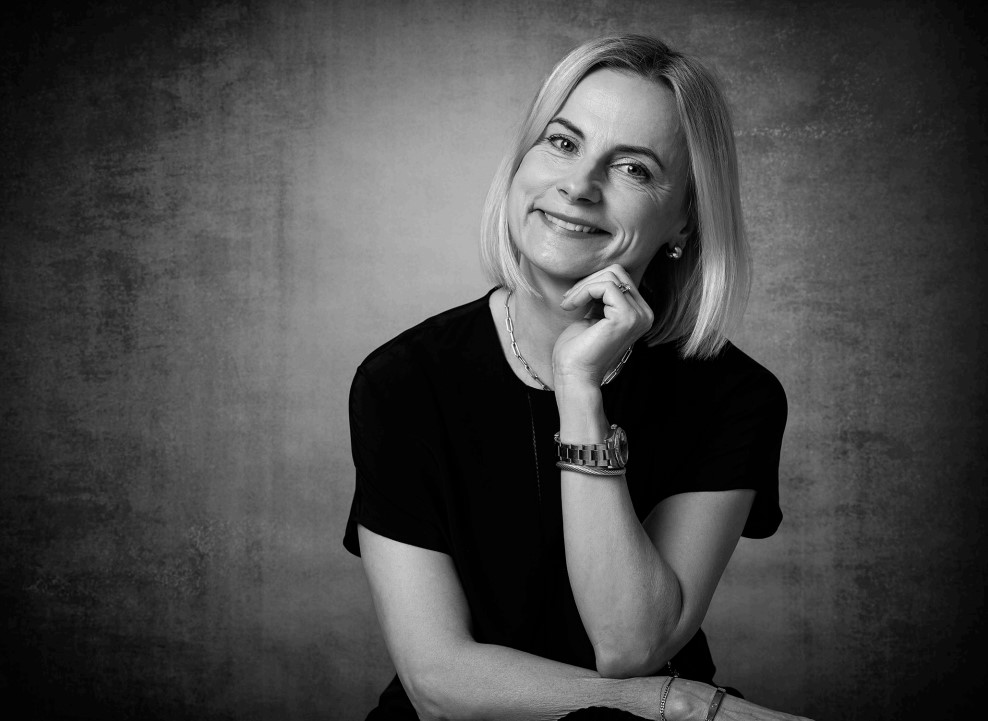 Administration Officer, Gosia Dekempe
Administration Officer, Gosia Dekempe
Phone: +45 35327529
Email: malgorzata.dekempe*nbi.ku.dk

